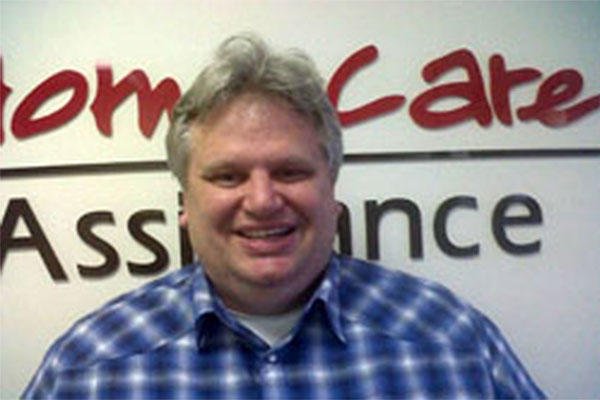Scott Fillingame has had an unusual path to his current career – a former lieutenant in the Army National Guard, he has made the shift from the commercial rebuilding business to senior home care, as part of the Home Care Assistance franchise. Fillingame is the current owner of Home Care Assistance of Houston and Galveston. We caught up with Lt. Fillingame to get his insights on the industry.
Tell us about your military experience.
West Point was available to me after high school, but I passed on that and went to college. I ended up regretting that I missed out on that, so I went into ROTC and that’s the way I received my commission. I was commissioned into the maintenance section of the Army so we were stationed out of Aberdeen Proving Grounds in Maryland right around Gulf War I. We were standby to fly over to Kuwait but our orders were eventually cancelled and we flew home in January of ’91.
I came back to Guard duty in the States, and was stationed with the 634th Texas National Guard just outside Texarcana, Texas. I served there for a few tours and then left to join my family’s commercial rebuilding business in Houston.
It’s quite a jump from commercial rebuilding to senior home care.
Yes, indeed. [Laughs] My father started in the commercial rebuilding business back in the early 70s, and my brother and I formed our own shop in ’93. But when my dad was diagnosed [with Multiple System Atrophy, a condition similar to Parkinsons], it was my first exposure to home care, and led us to thinking about getting involved.
We just basically first determined that commercial rebuilding was not what it used to be – a lot of the manufacturing done here in our younger days had moved overseas, and more products are coming from across the water, so we started looking around for something else to do. The baby boomer population in the States is aging, there is a market there, and if you’re going into a service industry you’re not going to worry as much about “foreign invaders.”
Dealing with the ordeal with my father also led me to come to appreciate what caregivers do. He was adamant about staying home, and he got his wish -- he passed in his house. I thought, “You know, I bet a lot of other people want to stay in their homes too.” The more we looked at it, the more we liked it and thought, “We can do this.” We called up [Home Care Assistance headquarters in ] Palo Alto and talked to them for a while, and the next thing you know we were knee-deep in it, as they say.
What are the challenges of owning a home care franchise?
At first glance, you think, “Two people sitting in front of a desk at a computer, how challenging can that be?” but there certainly is a lot to learn. You definitely need some reading glasses. I had some continuing education, two years at the University of Houston for engineering, and a four-year business degree from Texas A&M, and I can still say that it is a challenge. For me, the desire to help people has trumped any speed bumps along the way, and I can say that one advantage of being part of a large franchise is that people who have been there before mentor you, and the people here have backgrounds in geriatrics or clinical psychology, so there is skill support when you need it, just a phone call away.
Do you still see growth in this industry in the current economy?
We are because of the aging population, and in the market we’re in we deal with folks who have the option to receive care at home because of the wealth they’ve accumulated over time. I do think the economy has affected the industry a bit as a whole, but we’re a small fish in a big pond, for the size we’re at and the growth sector we’re in right now.
What skills do you learn in the military that translate well to this field?
The military is great at teaching discipline and people skills, and those are paramount to this particular industry. People are your resources and your clients. I would say that like with everything else, be sure you have a passion for this because there’s good days and bad days. Having a passion helps get you past the rough spots.
When you go into the military, you get the structure and the organizational skills that allow you to focus on the task at hand. Without those it takes a while to learn, which can slow you down in the business world. Everything’s timely and as you know, the military is all about being timely -- you get here, here’s your outboard, here’s your rendezvous point, get busy.
What do you see as your biggest challenge moving forward?
For us, I think that if this economy continues for several years, people will see this is one of the areas you can generate a living from, and I expect the field will get quite crowded. Hopefully we can brand ourselves over the next few years to at least be considered a top player. I think it’s very doable -- we’re a service-oriented agency and the need is there, and you’re not worrying about outside competition. You can’t order home care up overseas and have it shipped in.
Do you have any tips for those transitioning out of the military?
Brace yourself. It’s been tough here lately. I think if you’re coming out of a [military] setting right now, I’d tout my background because if you can let people know about the skills you’ve attained, that will give you an edge over another applicant in tipping the job in your favor. There’s a distinct difference, especially in younger people, between those with military service and those who don’t have it. There’s an edge there in focus and reliability.











